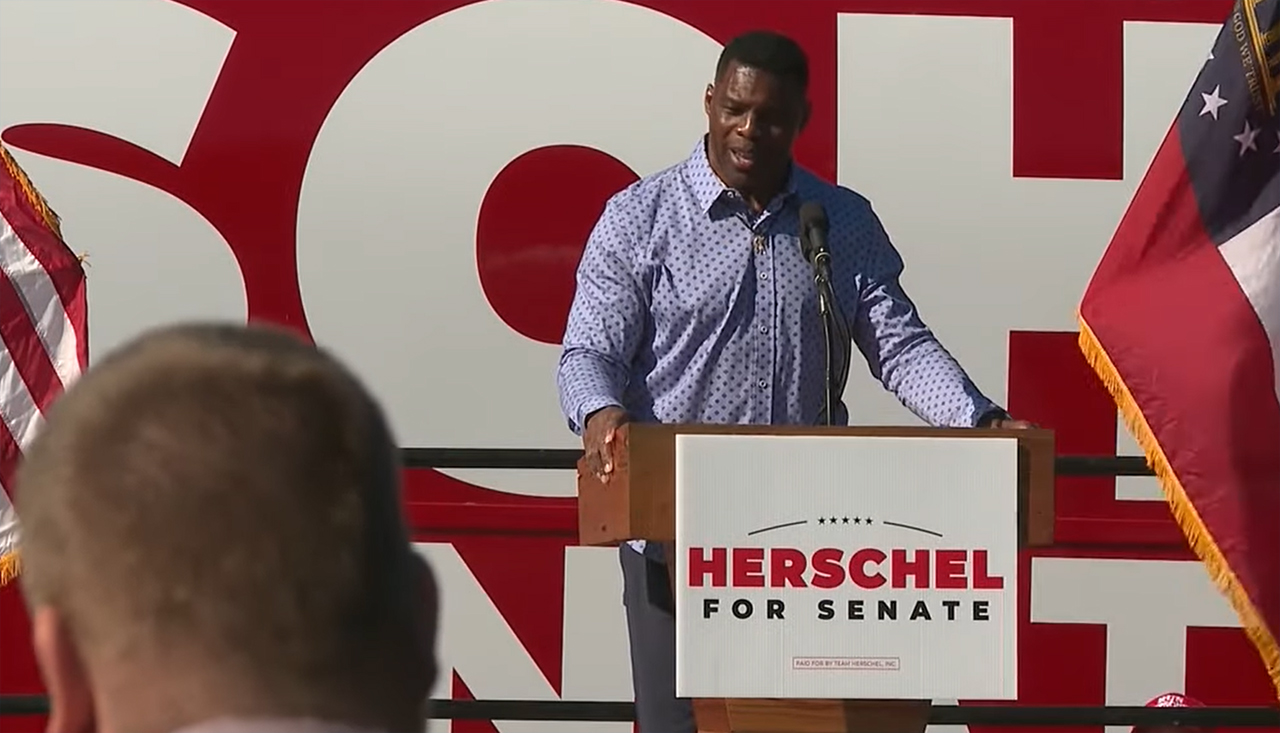This story was originally published by The 19th
Republicans have tried to make Democratic Sen. Raphael Warnock’s campaign expenses an issue, and advocates worry this could discourage parents of young children from running for office.
By Mel Leonor Barclay, The 19th

Federal election rules began to allow candidates to use campaign funds to cover child care expenses for the first time just four years ago, mainly at the request of women candidates who said it was crucial to their candidacies.
Now, Republicans are using the practice to attack Democratic Sen. Raphael Warnock in the heated race for a Georgia Senate seat, which is set for a runoff December 6.
His Republican opponent, Herschel Walker, assailed Warnock’s use of the campaign funds this month — one of multiple attacks involving Warnock’s custody dispute with his ex-wife as Walker defends himself against scandals involving his own parenting, including the existence of three children he had not publicly disclosed.
“He paid himself for child care, all that stuff — why don’t he keep his own kids? Don’t have nobody keep your kids,” Walker said during a campaign stop in Augusta this month.
The attacks seek to paint Warnock as benefiting personally from supporters’ campaign contributions, at a time when many Americans are worried about the rising cost of living. But advocates of the new campaign finance rules on child care expenses say they also could serve to discourage parents of young children from running for office by making it politically risky to tap into contributions for regular or occasional care.
“I think that would discourage candidates who need the funding, Republicans and Democrats, from running,” said Candace Valenzuela, who ran unsuccessfully as a Democrat to represent Texas’ 24th Congressional District in 2020. She tapped campaign contributions to pay for child care for her infant and toddler. She said that having access to those funds was crucial to her ability to run for office.
Valenzuela, who advocates for the practice at the federal and state level, said she was public about her use of campaign funds for this effort during her race, in part to normalize an expense that has long kept some parents from seeking office.
“Men can use campaign funds for a lot of interesting things,” she said, citing a tuxedo rental as an example. “In this country, there is an undervaluing of caregiving.”
Federal campaign finance disclosures show Warnock has tapped his campaign coffers for over $61,000 to cover child care expenses since September of 2020, including regular payments to a nanny service that ceased in 2021. This year, Warnock’s campaign-funded child care expenses have totaled $2,280, federal records show.
As part of a broader attack line accusing Warnock of benefiting from his office, Republicans have gone after the child care expenditures since the summer.
“Raphael Warnock has used every avenue he can find to benefit himself and his liberal bosses in Washington while having others pay for his housing, childcare and personal legal bills,” Scott said in a statement to POLITICO in September.
In an August news release, the National Republican Senatorial Committee accused Warnock of using his campaign account “to bilk for personal expenses.”
Liuba Grechen Shirley, the founder of the Vote Mama Foundation, chided the attacks for “shaming” a practice that can help parent candidates overcome a critical hurdle and increase representation of young parents in Congress and other elected offices.
From 2018 to 2020, 59 candidates for federal office — 47 Democrats and 12 Republicans — have used campaign funds for child care, according to data compiled by Vote Mama. Of those, 33 were women and 26 were men, though 73 percent of all of the funds spent were spent by women. About 45 percent were spent by candidates of color.
“Using campaign funds to pay for child care does not make Warnock less of a father,” said Grechen Shirley, who successfully advocated for the FEC rule change that allowed the practice. She went on to use campaign funds for child care during her unsuccessful 2018 House race to represent a Long Island, New York, district. “They are not taxpayer dollars. These are private funds.”
While the Federal Election Commission’s decision impacts candidates for federal office, each state decides whether campaign funds can be used in runs for state and local office. Vote Mama lobbies state legislatures to make that legal, and Grechen Shirley said the proposal has gained support from both Democratic and GOP-controlled chambers. Right now, 16 states allow it through legislation, and 10 more allow it through rulings and opinions by ethics panels or their state attorney general.
Neither campaign responded to requests for comment.
Walker’s campaign was rocked earlier in the cycle over allegations that he paid for at least two abortions, even as he took a strong anti-abortion stance in his run. His son, Christian Walker, 22, has strongly criticized his father online after the Daily Beast reported that Walker had three children he had not publicly disclosed.
In comments to the Atlanta Journal-Constitution, Warnock rebuked Walker over his comments earlier this month. “I know that politics is ugly,” said Warnock, a father of two. “People play all kinds of games, unfortunately. But Herschel Walker and his allies have crossed a line where my family is concerned.”
After Warnock’s interview with the Atlanta paper, a spokesman released a statement calling Warnock “a hypocrite.” “Raphael Warnock doesn’t want his family talked about even though he and his allies have no problem with Herschel’s family being attacked,” campaign spokesman Will Kiley said.

Blog dedicated to news and viewpoints from Black journalists who support, and inform, communities of color.
Original content, and curated articles, are posted and updated daily.
